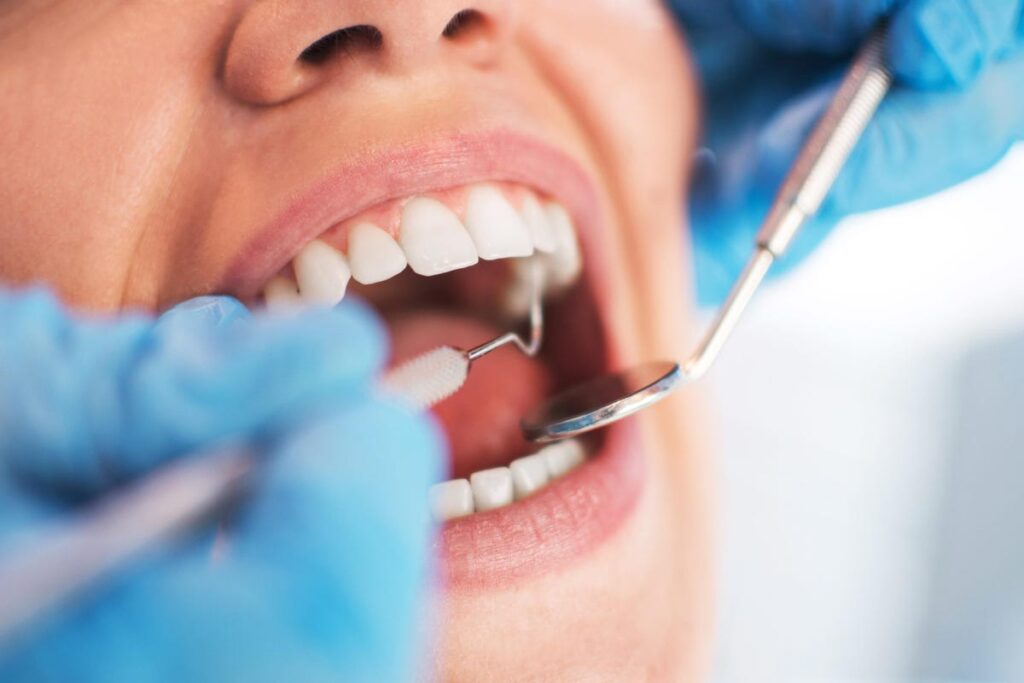Open female mouth during oral checkup at the dentist.
One of the U.K.’s biggest private dental providers will close, merge or sell 85 of its branches after struggling to recruit enough dentists.
This is nearly a fifth of the firm — Bupa’s — practices, and represents a significant blow to an already-struggling sector. The British Dental Association says the mass closures could leave 500,000 patients without access to care. They are also expected to affect around 1,200 staff.
The organisation warned they are “just the tip of the iceberg” for a service “built on sand.”
BUPA blamed an inability to recruit enough dentists for its National Health Service (NHS) work for the closures, as well as the increasing cost of running practices as energy prices have soared.
Increasingly high demand and complex cases have also stretched capacity, the firm, which offers private services as well as publicly-subsidised treatment, said.
In the U.K., many services including regular check-ups, fillings, and more extensive treatment, are available at a reduced cost on the NHS. But with demand for such services outpacing supply, it has become increasingly difficult for many members of the public to access affordable care.
Last summer, an extensive BBC investigation found some 90% of dental practices in the U.K. were no longer accepting new adult NHS patients. Eight in ten weren’t accepting kids.
A lack of local capacity has have left patients travelling hundreds of miles to reach a dentist, and, in some cases, even pulling out their own teeth, the outlet reported.
Mark Allan, the general manager for Bupa Dental Care, said the firm’s move would enable local health commissioners to procure more tailored local services.
The NHS is in the process of transferring responsibility for dental care from regional to more local commissioning bodies.
Allan said: “As a leading dental provider in the UK, our priority must be to enable patients to receive the care they need.
“For the majority of affected practices, this decision will allow commissioners to procure local providers for [NHS work], tailoring services and investment to the needs of the local community, thereby providing a better opportunity for patients to continue access to NHS dental services.”
He said the firm “fully understands” the impact the closures and sales will have on patients and staff at the affected practices.
“This decision has not been taken lightly and closure is a last resort,” he said, adding: “Despite our continued efforts, the dental industry is facing a number of significant and systemic challenges that are placing additional pressure on providing patient care, in particular recruiting dentists to deliver NHS dental care.
“This decision enables us to focus our efforts on high-quality, continued sustainable care for patients across our wider portfolio.”
The BDA argues greater reform is needed to sustain NHS dental work in the long run.
The organisation’s Shawn Charlwood said: “Years of failed contracts and underfunding have taken their toll and more will inevitably follow.
“This crisis is hitting millions,” he added, saying ministers “need to wake up and set out a plan to save this service.”


